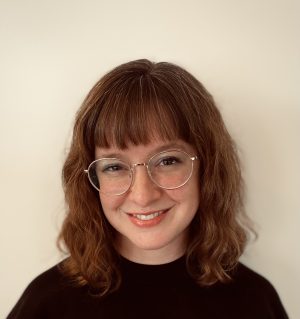To download the episode, subscribe to us in the iTunes store, Spotify Podcasts, and Google Play.
In this episode, Belle interviews Arang Keshavarzian, Associate Professor in Middle Eastern and Islamic Studies at New York University, about his recent book, Making Space for the Gulf: Histories of Regionalism and the Middle East (Stanford University Press, 2024).
In Making Space for the Gulf (and in our podcast episode), Keshavarzian offers a relational understanding of the Persian Gulf that foregrounds the entangled histories of its shores, as well as the body of water itself. He illustrates how several threads, including the environment, political economy, society, empire, nation-making, urbanism, and kinship, interweave and inform one another to produce the space we collectively understand as “the Gulf.” The book includes Iran and Iraq as integral parts of “the Gulf,” which more often refers to the Gulf Cooperation Council countries (Bahrain, Kuwait, Oman, Qatar, Saudi Arabia, and the United Arab Emirates).
We begin our discussion with a brief history of the spatial politics of the Persian Gulf, and how the body of water itself and the surrounding areas are unhelpfully conceived of as either Persian or Arab. Keshavarzian traces the exclusionary practices that accompanied the creation of borders encapsulated in the debates over how to name a region. He demonstrates how this history was heavily intertwined with that of British imperial efforts in the region.
We continue by tracing a thread running through Making Space for the Gulf – the movement of people to, through, and across the region and the Gulf itself. Keshavarzian describes “the human scale” – how human connection was cultivated across the Persian Gulf, and how transformations of kinship and the emergence of exclusionary practices of citizenship were shaped by relationships to it. For example, Keshavarzian discusses the continuities and changes in labor practices in the region’s pearling economy and the patterns of exploitation and control that persist in the contemporary kafala system for migrant workers. He argues that these patterns in labor practices were often intertwined with existing patronage and kinship networks.
Keshavarzian also discusses the free trade zones Iran created in Kish and Dubai constructed on Jebel Ali. He illustrates how these “urban laboratories” serve as “global seams” of neoliberalism and nodes of global capitalist projects.
We end the podcast episode with a question on what Keshavarzian hopes our listeners and potential future readers of Making Space for the Gulf will take away from his book. A region most often associated with oil and US military presence, Keshavarzian hopes his work will inspire others to study the Persian Gulf in new ways – to imagine alternative social relationships and the built environment, the impacts of climate change, and what the future of the Gulf might hold.
Guest
Arang Keshavarzian
 Arang Keshavarzian is an Associate Professor in the Middle Eastern and Islamic Studies Department at New York University. He is the author of Bazaar and State in Iran: Politics of the Tehran Marketplace (Cambridge University Press, 2007), among other works. His most recent book, Making Space for the Gulf: Histories of Regionalism and the Middle East, was published by Stanford University Press in 2024.
Arang Keshavarzian is an Associate Professor in the Middle Eastern and Islamic Studies Department at New York University. He is the author of Bazaar and State in Iran: Politics of the Tehran Marketplace (Cambridge University Press, 2007), among other works. His most recent book, Making Space for the Gulf: Histories of Regionalism and the Middle East, was published by Stanford University Press in 2024.
Host
Belle Cheves
 Belle Cheves is a senior editor at Ajam Media Collective and a Postdoctoral Research Fellow at Bard College. Her research focuses on the history of family in Qajar Iran, specifically on how transformations of marital practices and affective perceptions of gender, race, and ethnicity shifted understandings of kinship, enslavement, and domestic service over the course of the nineteenth and twentieth centuries.
Belle Cheves is a senior editor at Ajam Media Collective and a Postdoctoral Research Fellow at Bard College. Her research focuses on the history of family in Qajar Iran, specifically on how transformations of marital practices and affective perceptions of gender, race, and ethnicity shifted understandings of kinship, enslavement, and domestic service over the course of the nineteenth and twentieth centuries.
Credits
Episode No. 45
Release Date: 17 November 2024
Recording Location: New York, NY
Recording Date: 21 June 2024
Produced by Belle Cheves
Audio Editing: Belle Cheves and Nicholas Gunty
Music: Yavaran (Intro: “404 day in heaven;” Outro: “Har Chi”)
Cover Image: Houshang Pezeshknia, Fishing in Khark, 1958, used as the book’s cover image. Image provided by author.











